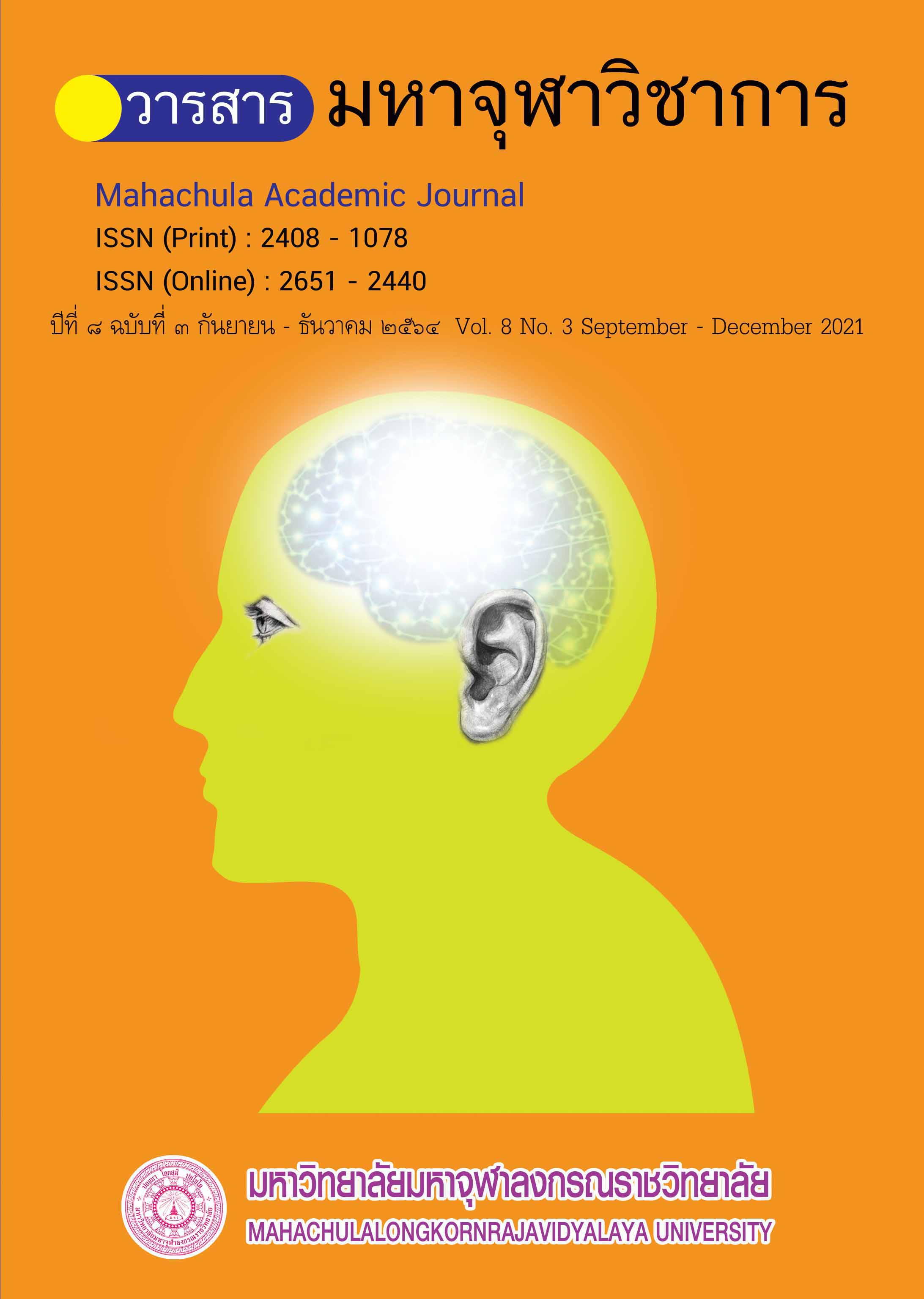Leadership according to Buddhism
Main Article Content
Abstract
A leader is someone who is recognized by others inside and outside the organization. Is a person who can determine the direction of the survival of the organization. and is a coordinator for various activities The organization operates effectively in accordance with the goals of the vision set. by the characteristics of a leader according to Buddhist known to adopt the principles of the 4 Brahma Viharas, the 7 Sappurisadhammas, the 7 Physical Strengths, the 4 Sangkhahavatthana, and the Dhammadhipati Come as a guideline for behavior to be a good role model for people in the organization and follow the theory of leadership characteristics according to the situation. and reform leaders.
Article Details
References
มหาจุฬาลงกรณราชวิทยาลัย. พระไตรปิฎกภาษาไทย ฉบับมหาจุฬาลงกรณราชวิทยาลัย. กรุงเทพมหานคร : โรงพิมพ์มหาจุฬาลงกรณราชวิทยาลัย, ๒๕๓๙.
เนตร์พัณณา ยาวิราช. ภาวะผู้นำ และผู้นำเชิงกลยุทธ์. กรุงเทพมหานคร : บริษัทเซ็นทรัลเอ็กซ์เพรส จำกัด, ๒๕๔๖.
พระธรรมโกศาจารย์ (ประยูร ธมฺมจิตฺโต). พุทธวิธีบริหาร. กรุงเทพมหานคร : โรงพิมพ์มหาจุฬาลงกรณราชวิทยาลัย, ๒๕๔๙.
พระธรรมปิฎก (ป.อ. ปยุตฺโต). ภาวะผู้นำ. กรุงเทพมหานคร : ธรรมสภา, ๒๕๔๖.
สงวน นิตยารัมภ์พงศ์ และสุทธิลักษณ์ สติตะสิริ บรรณาธิการ. พิมพ์ครั้งที่ ๒. กรุงเทพมหานคร : สำนักพิมพ์มติชน, ๒๕๔๑.
Fred E. Fiedler and Martin M. Chemers. Leadership and Effective Management. Glenview, III. : Scott, Foresman, 1974.
Normand L. Frigon, Sr. & Harry K. Jackson, Jr. The Leader : Developing the Skills & Personal Qualities You Need to Lead Effectively. New York : American Management Association, 1996.
Vroom and Yetton, 1973. quoted in Gary Dessler. Management : Principles and Practices for Tomorrow’s Leaders, 3rd ed. New Jersey : Pearson Education, Inc., 2004.


